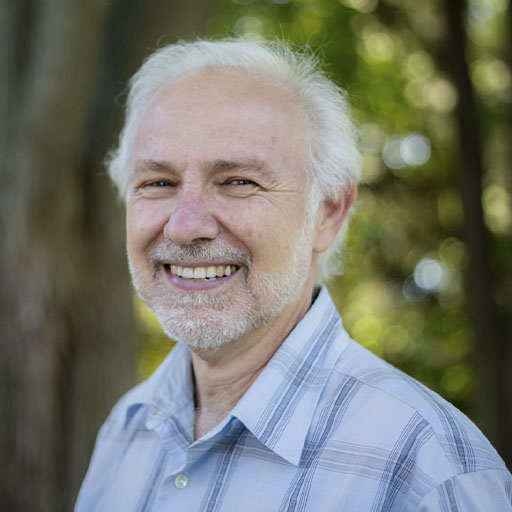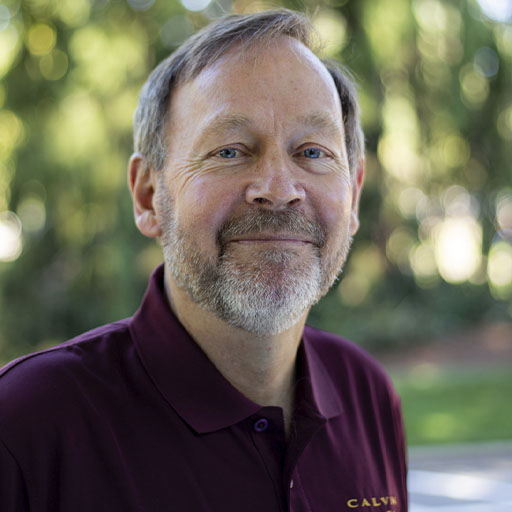Master of Education Online

Transform Students with an Online Master of Education
The Master of Education program propels your teaching and career forward, while equipping you to lead your learning community through justice and service. With a faith perspective and an emphasis on practical experience, Calvin offers a literacy concentration and inclusion concentration, both fully online.
Learn More Today
Complete the form to learn more about this program.
- Duration 20 months*
- Cost per Credit $585
- Credit Hours 30 – 32
Program Benefits
- Complete in as little as 20 months
- 2 in-demand specializations
- Prepares literacy students for teaching endorsement
- No GRE/GMAT required
Teach by Thinking Deeply and Acting Justly
The Master of Education online from Calvin University prepares students for responsive, visionary leadership in education. Designed for current K–12 educators, the program seeks to deepen knowledge in specialty areas. Calvin University’s program teaches educators to create diverse, inclusive, and sustainable environments for learning.
The master’s degree in education online frames knowledge and experience with the lenses of community, service, and justice. Calvin encourages deep thinking to help you become a teacher who can rise to meet the unique challenges of today’s education system.
“Going to a college where the foundation was the Christian faith, I was able to grow in that. Learning how to teach through that lens was very important to me. Being able to carry my Christian values into my classroom and to have that shaping through the education program at Calvin was very, very helpful.”– KRISTIN OTTE GROOM, MASTER OF EDUCATION – LITERACY GRADUATE
Career Outlook
M.Ed. degree graduates accept roles as special education teachers, literacy specialists, and literacy coaches and advisors.
Employment of special education teachers is expected to grow by 2028, with the majority needed in elementary and secondary schools.1 The need for instructional coordinators and specialists is also projected to increase in the K–12 environment.2
Depending on the concentration chosen, the Master of Education online can prepare educators to create more inclusive settings for students and staff or design, implement, and evaluate literacy instruction that meets the needs of all learners.
Career OutlookCurriculum
At Calvin University, the M.Ed degree provides a Christian frame for understanding education and student well-being.
The Master of Education online program consists of 30 to 32 credit hours, depending on whether you choose the literacy concentration or inclusion concentration. Common courses provide a knowledge foundation that serves students in their concentrations. Students can also complete a practicum in their area.
View Courses
Program Outcomes
After completing the program, you’ll be able to:
- Choose appropriate technologies to enhance learning activities.
- Design and lead professional teaching and learning experiences.
- Collect and use data to support student learning.
- Understand complex issues in your field of specialization.
- Explain how particular orientations, beliefs, and values shape approaches to education.
Choose From Two Concentrations
To deepen the knowledge and inspirational leadership of educators, Calvin University offers a literacy concentration and inclusion concentration in the Master of Education online program.
Admission Requirements
To apply for the Master of Education online program from Calvin University, you’ll need:
- A completed application
- Bachelor’s degree from a regionally accredited college or university
- Official transcripts of all post-secondary academic coursework to demonstrate a minimum cumulative 2.8 GPA on a 4.0 scale
- Two letters of professional recommendation
- An essay detailing the applicant’s professional goals
- Documented teacher certification or eligibility for teacher certification
Tuition Details
This 30 to 32 credit hour program costs $585 per credit hour. Find out more about tuition so you can make an informed financial decision.
Get Tuition DetailsCalvin Faculty
The online M.Ed. program faculty encourages deep thinking that prepares you to meet the challenges of today’s education system.
“Professors are approachable and relatable. They recognize us as colleagues, as full-time teachers taking classes part-time. They gave a lot of consideration for the busyness of our lives. They were willing to be flexible yet professional.”
–Eunsub Cho, Master of Education graduate
Faculty Spotlight

Clarence Joldersma Ph.D., Co-Director
Clarence Joldersma is the resident philosopher and interdisciplinary scholar of the Graduate Studies in Education Program at Calvin University. He has been influenced by theorists from several academic areas, including Thomas Kuhn and Michael Polanyi in the philosophy of science, Jurgen Habermas and Emmanuel Levinas in continental philosophy, and Hendrik Hart and Nicholas Wolterstorff in Christian philosophy.
Over fifteen years of experience as a high school science teacher in Ontario have helped shape his thinking about education and schools. His graduate work at the Institute for Christian Studies and the University of Toronto was in philosophy, first the philosophy of science and the philosophy of mind and cognitive science.
Those who have studied with Professor Joldersma have observed that he works “at the boundaries,” at the intersection of political science/theory, sociology, natural sciences (especially biology), and education. In particular, what animates him are issues of social justice and sustainability. This wide range of interests enables him to ask philosophical questions that expand conceptual horizons, both for himself and his students. He has an eye for asking penetrating questions and has a knack of framing complex issues in ways that move thinking forward, without doing it for you.

James Rooks Ed.D., Co-Director
James Rooks’ work in literacy and reading education has spanned 20 years. During this time, he has been awarded three Title II professional development grants to work with teachers from public and Christian schools in the Grand Rapids area, and he has taught graduate courses in literacy and cultural awareness and has lead professional development programs for teachers in Honduras.
His association with Calvin began some time ago when he received his undergraduate degree here. He earned his master’s and doctorate degrees from the University of Toronto and taught at Redeemer University College in Canada. He has taught at the elementary and high school levels and served as a principal in Christian schools in the Toronto area. He recently stepped down from his role as Dean of Education, and now serves as a professor in the Calvin graduate program.
Financial Aid
At Calvin University, we’re committed to making your education affordable. Find out more about your financial aid options, including U.S. military benefits and employer tuition reimbursement.
Get Financial Aid DetailsOnline Learning That Fits Into Your Life
The program engages all areas of life. At Calvin, we believe that learning comes from doing, and we maintain our commitment to practical, hands-on application and experience for online students.
Embrace the flexibility of an online program coupled with individualized instruction.
Online Student ExperienceFrequently Asked Questions
If you have a question we don’t cover here, request more information or call 1-855-474-8346.
Each program is different, but we strive to be as flexible as possible when helping you achieve your goals. For more information, contact us.
While our curriculum is taught from a Christian perspective, being a Christian is not required to apply to Calvin University.
Yes. You must choose between the literacy and the inclusion concentration.
You can visit us! Calvin University is in Grand Rapids, Michigan.
To apply for admission, follow this process:
Step 1: Fill out our application form.
Step 2: Complete your application file, including all program-specific requirements.
Step 3: Request official transcripts from each undergraduate or post-graduate institution you have attended.
Explore the application process here.